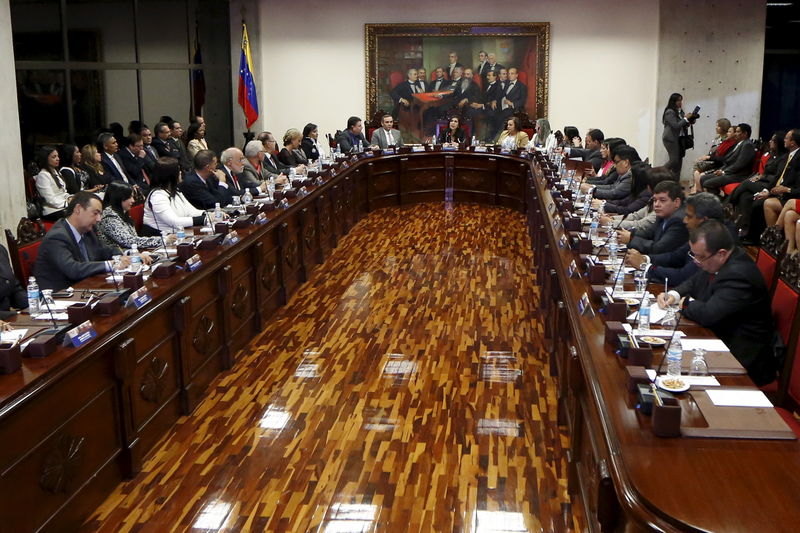(Bloomberg) -- A delegation from Venezuela’s government is in Qatar to pitch officials there on its soon-to-be-issued cryptocurrency, according to two people with knowledge of the meetings.
The Venezuelan group led by crypto superintendent Carlos Vargas is currently negotiating discounts on the digital token to lure Qatar as an initial investor, the people said. The digital scrip known as the petro, which it plans to begin selling next month, is part of Venezuelan efforts to skirt U.S. sanctions that have limited its access to financial institutions.
Officials at Venezuela’s Information Ministry and Qatar’s government communications office didn’t reply to requests for comment.
With the petro, Venezuela is seeking to take advantage of global enthusiasm for blockchain-based assets such as Bitcoin and help lift its economy out of one of the world’s deepest recessions amid a crippling shortage of hard currency. Qatar, which has been under an economic embargo by a Saudi-led coalition since June, has moved to shore up friendships abroad, with purchases of U.S. military jets, Italian naval ships and planes from France.
Venezuela intends to issue 100 million petros, with about 38 million going to institutional investors in a month-long private pre-sale set to begin Feb. 15 that officials expect will bring in as much as $1.3 billion, according to draft documents reviewed by Bloomberg News. The currency then would be sold to individuals. The oil-rich nation plans to pay public workers in the digital token and to use tax incentives to encourage its use. While the petro would be backed by one barrel of Venezuelan crude, the coins can’t be exchanged for the actual oil.
Officials including Vargas, Constituent Assembly President Delcy Rodriguez and Technology Minister Hugbel Roa also met with Qatar’s Emir Sheikh Tamim bin Hamad Al Thani earlier this month in Qatar, according to a tweet from the Cryptocurrency Superintendency.
Venezuelan President Nicolas Maduro visited Doha in 2015 seeking to form a financial alliance with banks to help cover the fall in oil prices. The countries signed eight agreements that expanding cooperation in issues such as air transport and trade. That year, Venezuela’s state-owned oil company, PDVSA, said it held meetings with Qatar Petroleum about investment opportunities valued at $7 billion. No transactions ever took place.
